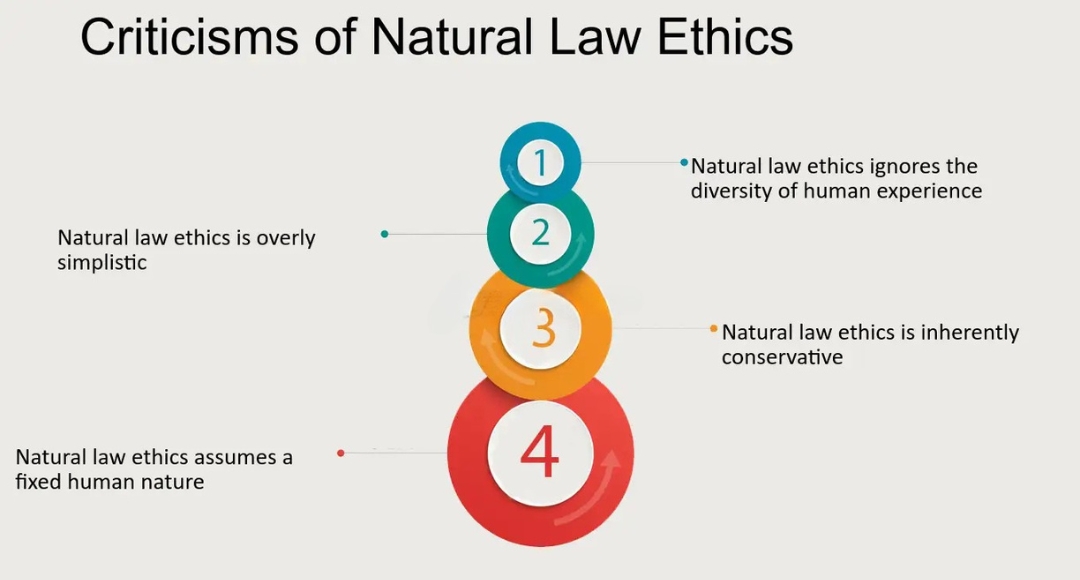The Natural School of Law
The Natural School of Law is one of the most fundamental and historically significant schools of jurisprudence. It emphasizes the idea that law is derived from nature, reason, and morality rather than solely from legislative or judicial authority. The roots of this legal philosophy can be traced back to ancient times, influencing various legal systems and thinkers throughout history.
In this comprehensive guide, we will explore:
- The meaning and origin of the Natural School of Law
- Contributions of key philosophers
- Various historical periods of natural law
- Criticisms and Modern Relevance
Let’s dive in!
What is the Natural School of Law?

The Natural School of Law, also known as Natural Law Theory, is based on the belief that laws should be aligned with morality and human reason. It suggests that certain rights and principles exist inherently, irrespective of written laws or governmental enforcement.
This school of thought argues that legal rules should be just, fair, and universal rather than dictated by political authorities alone. Natural law has significantly influenced human rights, constitutional law, and international legal frameworks.
Historical Development of Natural Law Theory
The evolution of natural law can be divided into five major periods:
1. Ancient Period
During this period, Greek and Roman philosophers laid the groundwork for natural law principles.
- Socrates (469–399 BCE)P: Socrates emphasized the connection between justice, virtue, and law. He believed that true laws are based on moral principles and should promote justice in society.
- Plato (427–347 BCE): Plato’s natural law ideas revolved around the concept of an ideal state. He argued that laws should reflect justice and morality rather than arbitrary rules imposed by rulers.
- Aristotle (384–322 BCE): Aristotle was one of the earliest thinkers to distinguish between natural law and man-made laws. He believed that natural law is based on reason and should be universally applicable to all societies.
- Cicero (106–43 BCE): Cicero, a Roman statesman and philosopher, famously said:
“True law is right reason in agreement with nature.”
He viewed natural law as unchangeable and eternal, superior to any human-made law.
2. Medieval Period
In the medieval era, Christian philosophers integrated natural law with religious doctrines.
- St. Augustine (354–430 CE): St. Augustine linked natural law with divine law, arguing that true justice comes from following God’s will.
- St. Thomas Aquinas (1225–1274 CE); Aquinas developed one of the most detailed theories of natural law. He divided law into four types:
- Eternal Law – God’s divine plan for the universe
- Natural Law – The moral principles that govern human behaviour
- Human Law – Laws created by human authorities
- Divine Law – Laws revealed in religious texts
According to Aquinas, human laws must align with natural law; otherwise, they are unjust and invalid.
3. Renaissance and Enlightenment Period
During this period, philosophers moved away from religious interpretations and focused on reason and individual rights.
- Hugo Grotius (1583–1645): Grotius is known as the father of modern natural law. He argued that natural law exists independently of God’s will and is based on reason and social contracts.
- John Locke (1632–1704): Locke’s natural law theory had a major impact on modern democracy and constitutional law. He believed that all individuals have natural rights to life, liberty, and property and that governments must protect these rights.
- Jean-Jacques Rousseau (1712–1778): Rousseau introduced the concept of the social contract, where laws should reflect the general will of the people and promote freedom and equality.
4. Modern Period
In the 19th and 20th centuries, natural law evolved to focus on human rights and international law.
- Lon L. Fuller (1902–1978): Fuller argued that laws must meet certain moral criteria to be considered valid. His eight principles of legality emphasize fairness, clarity, and consistency in laws.
5. Contemporary Period
Today, natural law continues to influence human rights laws, constitutional law, and international legal frameworks. It plays a key role in cases involving justice, morality, and fundamental freedoms.
Key Features of Natural Law Theory
- Moral Foundation – Laws should align with ethical principles and justice.
- Universality – Natural law applies to all human beings, regardless of time and place.
- Unchanging Nature – Unlike positive laws, natural laws remain constant over time.
- Higher Authority – Natural law is superior to human-made laws.
- Human Rights Protection – Forms the basis of modern human rights and fundamental freedoms.
Criticism of Natural Law Theory

Despite its influence, natural law has faced several criticisms:
- Lack of Clear Definition – Different philosophers interpret natural law differently.
- Conflict with Positive Law – Some argue that law should be based on state authority, not moral ideals.
- Religious Bias – Some critics say natural law is too closely tied to religious beliefs.
- Impracticality – Determining moral “truths” universally is difficult in diverse societies.
Modern Relevance of Natural Law
Natural law continues to shape legal principles in several areas:
1. Human Rights and Constitutional Law
- Many national constitutions recognize natural rights (e.g., the right to equality, freedom, and dignity).
- International agreements like the Universal Declaration of Human Rights (UDHR) are based on natural law principles.
2. International Law
- Treaties and conventions on war crimes, genocide, and human rights violations are guided by natural law ideas.
- The Nuremberg Trials held Nazi leaders accountable using natural law arguments.
3. Moral and Ethical Debates
- Natural law plays a role in issues like abortion, euthanasia, and capital punishment.
- Courts often refer to natural law when deciding cases involving justice and morality.
Conclusion
The Natural School of Law has played a crucial role in shaping legal philosophy and justice systems worldwide. While it has evolved over centuries, its core principles—justice, morality, and universal human rights—remain relevant today.
Even in modern legal debates, natural law continues to guide lawmakers, judges, and legal scholars. As societies evolve, the discussion on balancing legal authority and moral principles will continue to shape our legal landscape.
FAQs on Natural Law Theory
Q1: What is the difference between natural law and positive law?
Natural law is based on morality and universal justice, while positive law is created by governments and enforced by the state.
Q2: Is natural law still relevant today?
Yes! Natural law influences human rights, constitutional law, and international legal frameworks.
Q3: Does natural law apply to all cultures and religions?
While interpretations vary, natural law is considered universal and applicable to all human beings.
Q4: Can a law be considered invalid under natural law?
Yes. If a law violates fundamental human rights or moral principles, it may be deemed unjust and invalid.
Also Read:






